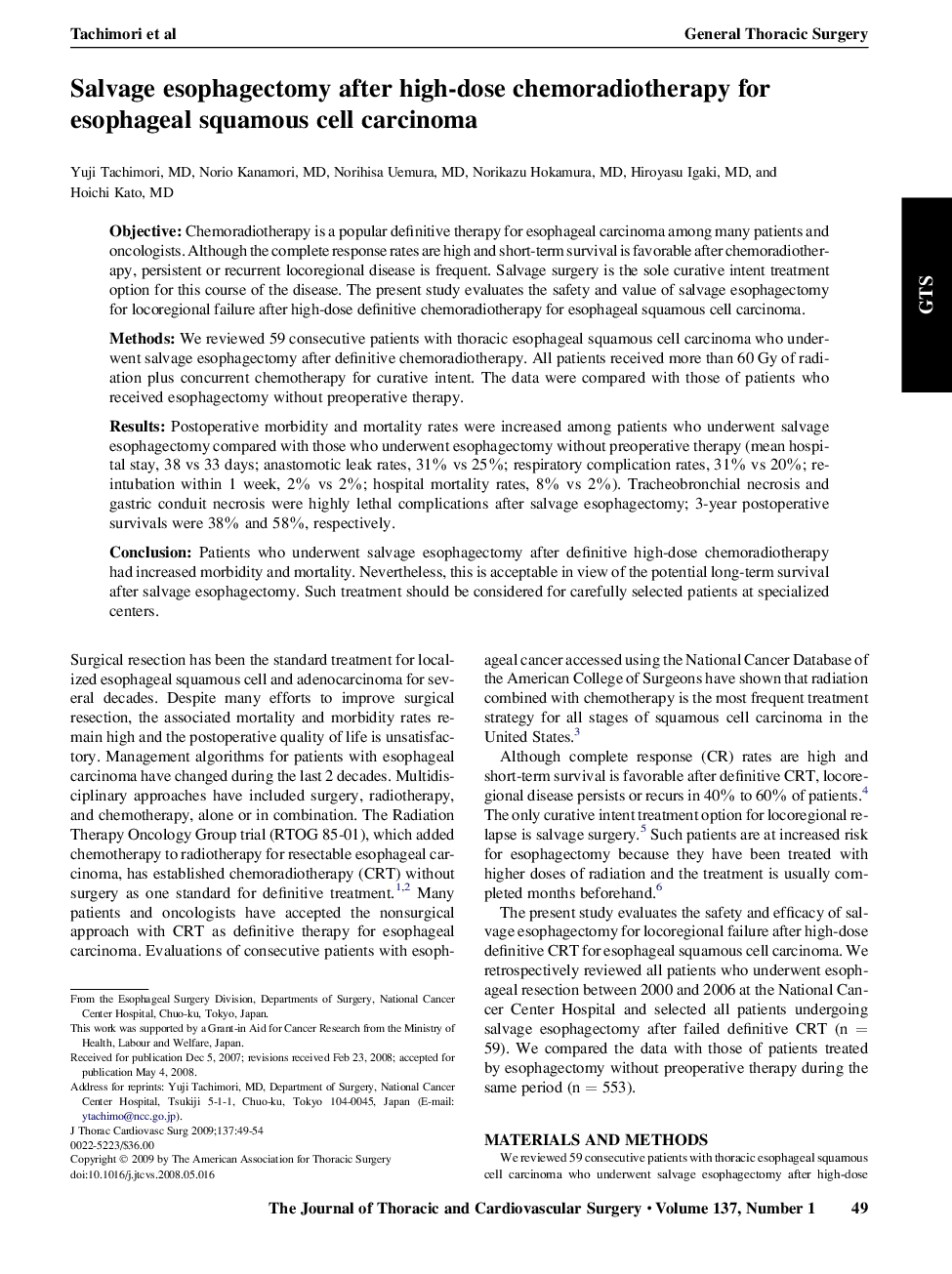| Article ID | Journal | Published Year | Pages | File Type |
|---|---|---|---|---|
| 2981987 | The Journal of Thoracic and Cardiovascular Surgery | 2009 | 6 Pages |
ObjectiveChemoradiotherapy is a popular definitive therapy for esophageal carcinoma among many patients and oncologists. Although the complete response rates are high and short-term survival is favorable after chemoradiotherapy, persistent or recurrent locoregional disease is frequent. Salvage surgery is the sole curative intent treatment option for this course of the disease. The present study evaluates the safety and value of salvage esophagectomy for locoregional failure after high-dose definitive chemoradiotherapy for esophageal squamous cell carcinoma.MethodsWe reviewed 59 consecutive patients with thoracic esophageal squamous cell carcinoma who underwent salvage esophagectomy after definitive chemoradiotherapy. All patients received more than 60 Gy of radiation plus concurrent chemotherapy for curative intent. The data were compared with those of patients who received esophagectomy without preoperative therapy.ResultsPostoperative morbidity and mortality rates were increased among patients who underwent salvage esophagectomy compared with those who underwent esophagectomy without preoperative therapy (mean hospital stay, 38 vs 33 days; anastomotic leak rates, 31% vs 25%; respiratory complication rates, 31% vs 20%; reintubation within 1 week, 2% vs 2%; hospital mortality rates, 8% vs 2%). Tracheobronchial necrosis and gastric conduit necrosis were highly lethal complications after salvage esophagectomy; 3-year postoperative survivals were 38% and 58%, respectively.ConclusionPatients who underwent salvage esophagectomy after definitive high-dose chemoradiotherapy had increased morbidity and mortality. Nevertheless, this is acceptable in view of the potential long-term survival after salvage esophagectomy. Such treatment should be considered for carefully selected patients at specialized centers.
